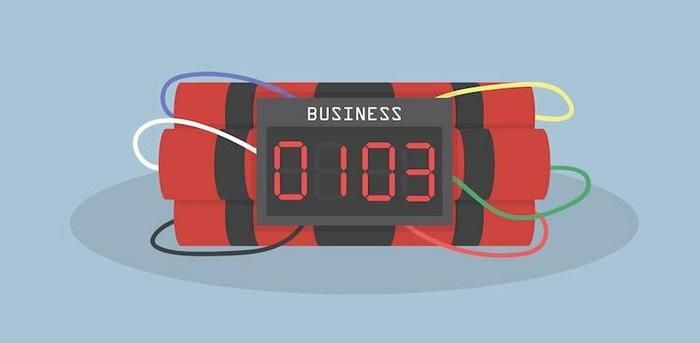
I have a confession to make: As addicted as I am to reading about productivity hacks, there are very few times when, after discovering a trick that will “end procrastination once and for all,” I actually implement it in my life. In fact, consuming these productivity articles in the wee hours of the night and sharing them on Twitter (#productivity) is my favorite form of procrastination.
It’s quite ironic, I know.
Yes, there’s plenty of advice out there about banishing procrastination, like these research-backed tips and this advice to write every distracting thought in a procrastination pad. But if you, like me, have found them unsuccessful, it’s time for more drastic measures.
Next time you really, really need to get something done, here are three last-resort ways to force yourself into action. They may be controversial, but they’re definitely effective.
1. Publicly Humiliate Yourself
Self-imposed deadlines are sometimes useless because we ourselves are not enough of an authority to enforce follow-through. That’s why adding third parties—specifically, third parties on social media—could be effective in creating consequences to our unfinished tasks. After all, little scares us more than public humiliation.
Apps like BetterMe make it possible to blackmail yourself. Every time you fail to complete an assignment or check in to somewhere you’ve scheduled yourself to be at (the gym, for example), BetterMe posts a humiliating message on your Facebook wall. If you snooze its alarm clock feature, for instance, the status “I am weak-willed. I set an alarm for 9:00 AM but instead I have decided to snooze” will appear on your profile.
Another self-blackmailing service, Aherk!, asks you to upload an embarrassing photo that will be released on Facebook in the case that you don’t achieve your goal. Yes, it’s frightening—but it works.
2. Use Apps That Banish Distractions
If the primary source of your procrastination comes from the web, it’s time to download applications that block these distractions. I’ve used SelfControl for the past two years and have found it incredibly effective in helping me avoid time-wasting websites. After you add sites to your “Blacklist,” all you have to do is set a period of time—anywhere between 15 minutes and 24 hours—to block them for. And, because there’s no way to unblock these sites (restarting your computer doesn’t shut down SelfControl), you are forced to come face-to-face with whatever is on your to-do list.
For anyone with a non-Mac, the Chrome extension StayFocusd also forces you to increase productivity while using a laptop. If you don’t want to completely banish distractions, just reduce the time you spend on them, StayFocusd allows you to set the number of hours you can use distracting websites. Once your allotted time is up, you won’t have access to blocked sites for the remainder of the day. At this point, there’s really not much you can do apart from forcing yourself to work.
3. Put Your Bank Account in Danger
If you tend to procrastinate outside of work, bringing financial punishments into the picture could be the key to helping you get things done. iCukoo alarm clock and Pact are great options for any serial snoozers and gym quitters out there. With iCukoo, you set the alarm clock and decide how much each snooze is worth. Whenever your snoozes add up to one pound—approximately $1.26—the app asks if you’d like to donate to charity or continue sleeping with the cost of adding money to your snoozes.
Pact helps you achieve health goals in a similar way. After you make a weekly Pact to either exercise more or eat healthier, you set the amount of money you’ll pay to other Pact members if you don’t reach the goals. And, if you’re successful in living healthily for the week, you earn real cash from members who failed to do so. With bank accounts on the line, it becomes much more difficult to justify why you’re snoozing the alarm or missing that Pilates class.
Although the thought of knowing you have to force yourself to get things done can be slightly discouraging, know that you’re not alone. That’s why these tools exist! So if you’ve attempted every productivity trick on the web and are still prone to procrastination, give these consequence-oriented methods a try.